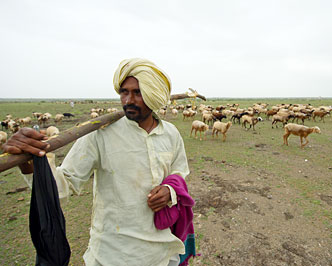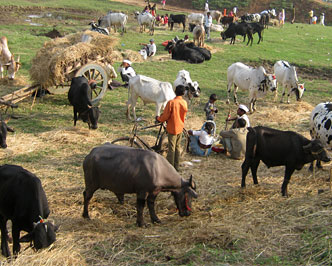-
- June 14, 2016
Forgotten Livestock and Lost Livelihoods
Rapidly industrializing India seems to have forgotten it’s agrarian past As new synthetic and factory made products replace traditional products made from natural sources the communities who were earlier responsible for making these products lose their traditional livelihoods and occupations and start searching for new and alternate livelihoods. As they change and these livelihoods disappear the use of these products also disappear and along with them biological diversity. Many livestock species and breeds which were only critical to the agrarian economy today stand threatened.
Nylon and synthetic blankets have replaced traditional ghongadi’s and kambli’s made from coarse wool which has meant shepherds no more want to keep wooly but are selecting for meat breeds. In Maharashtra, donkeys used to be reared by different communities such as the kaikadi’s, dhobis, wadaris. Kaikadi’s were the traditional basket weavers, dhobi’s the washermen and wadari’s the stone crushers.
As petrol and diesel vehicles enter even remote areas, the donkey is a forgotten species as also certain varieties of horses such as the ones reared by pastoral communities for transporting them from one village to another during migration. Very soon the donkey may only be seen in Photographs as there does seem to be any practical use for keeping them.
The winds of development and change sweep over us very fast and very quickly. Rapid changes can happen in a very short time and we sometimes stand the danger of losing valuable material in the form of knowledge and bio diversity in this thirst to modernize. It makes sense to stop for a minute and review the situation.
Background
60 years ago India made a tryst with destiny. The architects of the “temples of modern India






